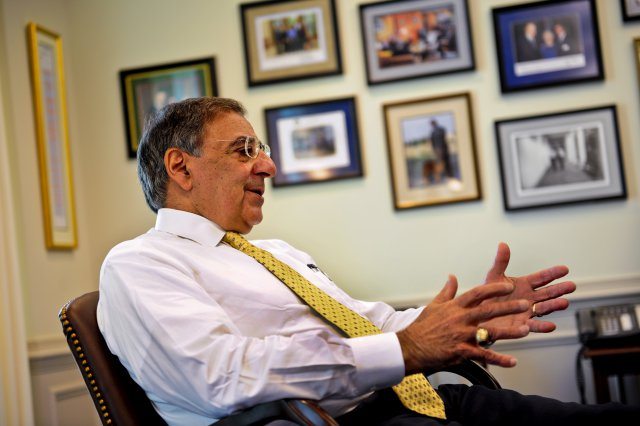In his clearest statement on the subject to date, Defense Secretary Leon E. Panetta said today that if the military retirement system changes, it will not affect serving servicemembers.
“I will not break faith,” the secretary said during a roundtable meeting with military media representatives in the Pentagon.
Panetta’s predecessor, Robert M. Gates, asked the Defense Business Board to look at the military retirement system and make recommendations. The final report is due later this month, but Panetta said he is familiar with the outlines of the proposal.
“I certainly haven’t made any decisions” on retirement, he said.
“People who have come into the service, who have put their lives on the line, who have been deployed to the war zones, who fought for this country, who have been promised certain benefits for that — I’m not going to break faith with what’s been promised to them,” Panetta said.
People in the service today will come under the current retirement system, which gives retirees 50 percent of their base pay after 20 years of service.
“Does that stop you from making changes?” Panetta asked. “No, because obviously you can ‘grandfather’ people in terms of their benefits and then look at what changes you want to put in place for people who become members of the all-volunteer force in the future.”
One aspect of the retirement issue is one of fairness, the secretary said. Most servicemembers do not spend 20 years in the military and therefore do not get any retirement benefits when they leave the service.
“They are not vested in any way,” Panetta said. “The question that is at least legitimate to ask is, ‘Is there a way for those future volunteers to shape this that might give them better protection to be able to have some retirement and take it with them?'”
Health care is another area that has to be dealt with, the secretary said. In fiscal 2001, the DoD health care bill was $19 billion. It is more than $50 billion now, he said, and it soars to the neighborhood of $60 billion in future years. Among proposals Congress is contemplating is an increase in some TRICARE military health plan premium payments.
“I think those recommendations make sense,” Panetta said. “Especially with tight budgets, it does make sense that people contribute a bit more with regards to getting that coverage.”
The Defense Department — which is responsible for a large part of the nation’s discretionary budget — will do its part to reduce the budget deficit, the secretary said. But while Defense has a role to play, he added, Congress has to deal with the more than two-thirds of the federal budget that represents the mandatory spending.
“If you are serious about getting the deficit down,” Panetta said, “you have to deal with the mandatory side of the budget and taxes.”
DoD has a responsibility to look at all aspects of the budget, the secretary said, and officials at the Pentagon are doing that.
“This is not because it is necessarily going to hurt areas,” he added, “because frankly, a lot of this can be done through efficiencies, a lot of it can be done looking at the administrative side of the programs: what can we do to make these programs more efficient?”
The secretary said he believes the budget crunch can represent an opportunity to make DoD a more efficient, effective and agile force that still can deal with the threats of the future.
The department also needs to ask how to provide benefits for troops and their families that will be effective at ensuring the nation always has a strong volunteer force, Panetta said.
“That’s a debate and discussion that it’s important for the Defense Department to have, the White House to have, the Congress to have and the country to have,” he said. “[We] need to have that debate about ‘How are we going to do this in a way that maintains the best military in the world?'”
The Defense Department will face some tough choices, Panetta acknowledged.
“I think the bottom line is this can be an opportunity to shape something very effective for the future that can still represent the best defense system in the world,” he said.











